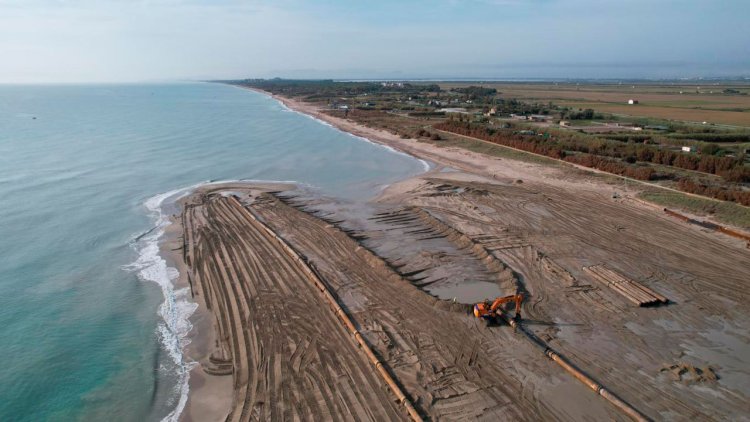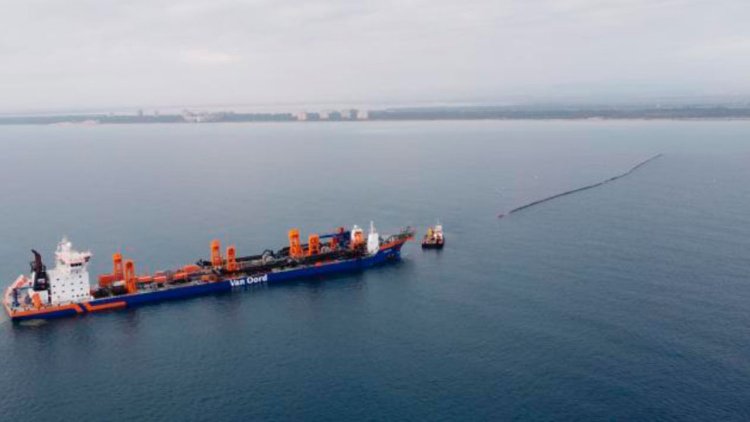Van Oord completes large-scale beach restoration project in Valencia
Van Oord completed the largest beach restoration in Spain’s history, restoring the beaches south of the city of Valencia to their original size. The beaches have been slowly eroding since 1965.

The Spanish government contracted the joint venture of Van Oord subsidiary Dravo S.A. and Rover Maritime to restore 7 kilometres of coastline and to extend 2 breakwaters to reduce erosion.
Van Oord deployed its largest trailing suction hopper dredger, the HAM 318, to apply 3.3 million cubic metres of sand, extending the beaches up to 150 metres wide. The dredged material was pumped ashore over a distance of 1.8 kilometres, using a combination of floating and submerged pipelines.
The widened beaches protect low-lying coastal communities, agricultural areas and the Albufera National Park separating its fresh water from the salt water of the Mediterranean Sea. Another part of the project was restoration of the dunes. A combination of sand, strategically placed sand collectors and newly planted vegetation form the basis of the new dunes. The sand collectors, made from a local type of cordgrass, are placed in squares to trap sand blown along by the wind. Within those squares, the newly planted vegetation will firm up the forming dunes. In total 75.5 kilometres of sand collectors and 44,000 plants were placed to contribute to the overall ecological fortification of the area. The aim is not only to safeguard the natural environment, but also to enhance its ecological resilience.
Jesus Martin, Managing Director Dravo S.A, said:
'Van Oord’s subsidiary Dravo S.A. looks back on the Valencia project with pride. Thanks to the expertise and commitment of the project team, the large-scale project has been successfully completed within budget and within the agreed execution period. The new beaches not only serve as coastal protection for Valencia, they also contribute to the restoration of the ecology within the area.'
The Spanish Government financed the project via the European Commission (EC). The EC started the NextGenerationEU fund in 2021, a temporary instrument to support recovery from the COVID-19 pandemic and build a greener, more digital and more resilient future. The fund means that members of the European Union have the opportunity to reform and invest in their countries. Part of this fund serves as a plan for recovery, transformation and resilience of coastal areas. The Valencia project, designed by the Ministry of Ecological Transition and Demographic Challenge, via the secretary of state for the environment and Valencia’s COSTAS office, met this pillar.




























